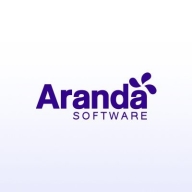

Microsoft Intune and Aranda Enterprise Mobility Management are mobile device management solutions. Aranda appears to have the upper hand due to its advanced features and customization, despite Intune's better pricing and integration.
Features: Microsoft Intune offers integration with Azure and Microsoft 365, security features, and compliance policies. Aranda provides extensive customization, policy setups, and comprehensive reporting capabilities. Intune's simplicity favors Microsoft-centric setups, while Aranda's features serve enterprises needing customization.
Ease of Deployment and Customer Service: Microsoft Intune has cloud-based deployment for quick implementation and robust support via Microsoft's resources. Aranda accommodates both cloud and on-premises options, offering personalized support, appealing to businesses needing tailored solutions. Intune is ideal for fast cloud deployment, whereas Aranda offers diverse deployment flexibility.
Pricing and ROI: Microsoft Intune offers competitive pricing attractive to current Microsoft users, with substantial ROI via integration capabilities. Aranda might have higher initial costs, but its customizable features provide notable ROI for enterprises seeking tailored management. Intune provides immediate cost benefits through integration, while Aranda offers better ROI via long-term flexibility.
| Product | Market Share (%) |
|---|---|
| Microsoft Intune | 31.3% |
| Aranda Enterprise Mobility Management | 0.2% |
| Other | 68.5% |

| Company Size | Count |
|---|---|
| Small Business | 116 |
| Midsize Enterprise | 46 |
| Large Enterprise | 152 |
With AEMM, you centralize access management, application control, data protection and security of all mobile devices used in your company, while limiting expenses and controlling mobility investments.
Microsoft Intune provides centralized management of mobile devices and applications, ensuring security, compliance, and productivity through integration with Microsoft services like Microsoft 365 and Azure Active Directory.
Organizations use Intune for managing mobile devices and applications, enhancing security and compliance across platforms. With features like single sign-on, conditional access, and zero-touch deployment via Autopilot, it facilitates efficient operations. Intune's scalability, easy enrollment, and capabilities such as remote wipe support diverse device management, offering robust data protection and efficient operation. Despite its features, improvement areas include reporting, compatibility with non-Microsoft devices, and better support for macOS and Linux devices.
What are the key features of Microsoft Intune?
What benefits should users look for in reviews?
In industries such as finance, healthcare, and education, Microsoft Intune is implemented to ensure secure and compliant device management. Companies leverage its capabilities to deploy security policies and manage both corporate-owned and BYOD environments, facilitating a unified approach to data protection and compliance.
We monitor all Enterprise Mobility Management (EMM) reviews to prevent fraudulent reviews and keep review quality high. We do not post reviews by company employees or direct competitors. We validate each review for authenticity via cross-reference with LinkedIn, and personal follow-up with the reviewer when necessary.